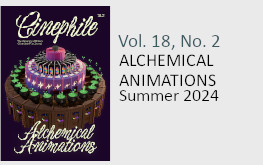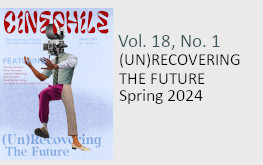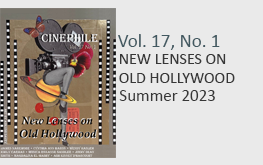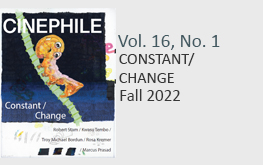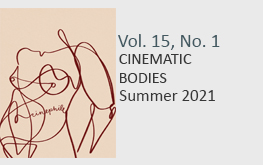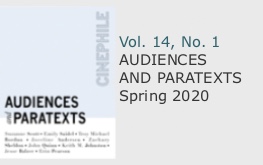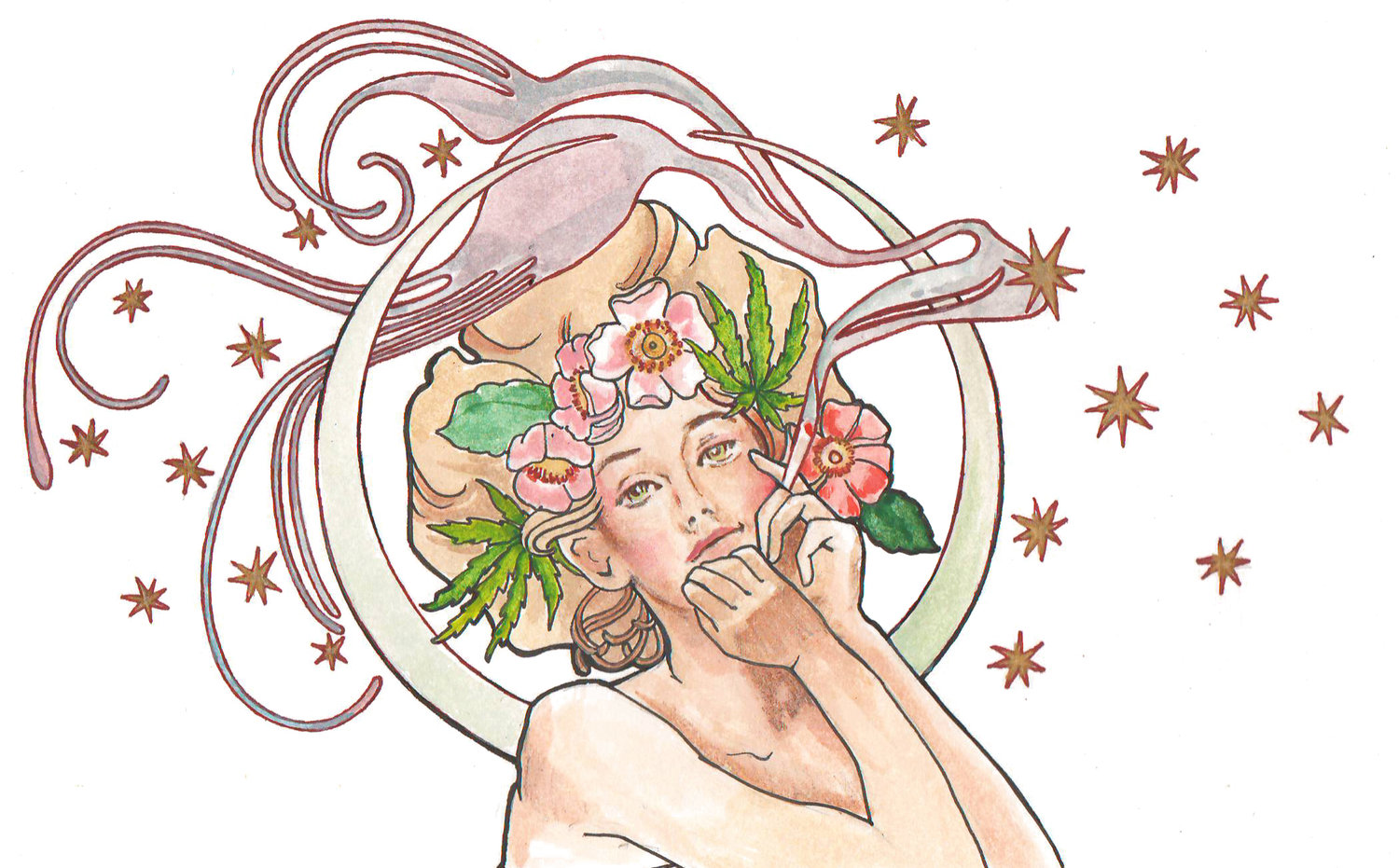
Cinephile 13.1: Call For Papers
Cinephile 13.1 – Low Culture and Mass Media: Narratives of the Mainstream
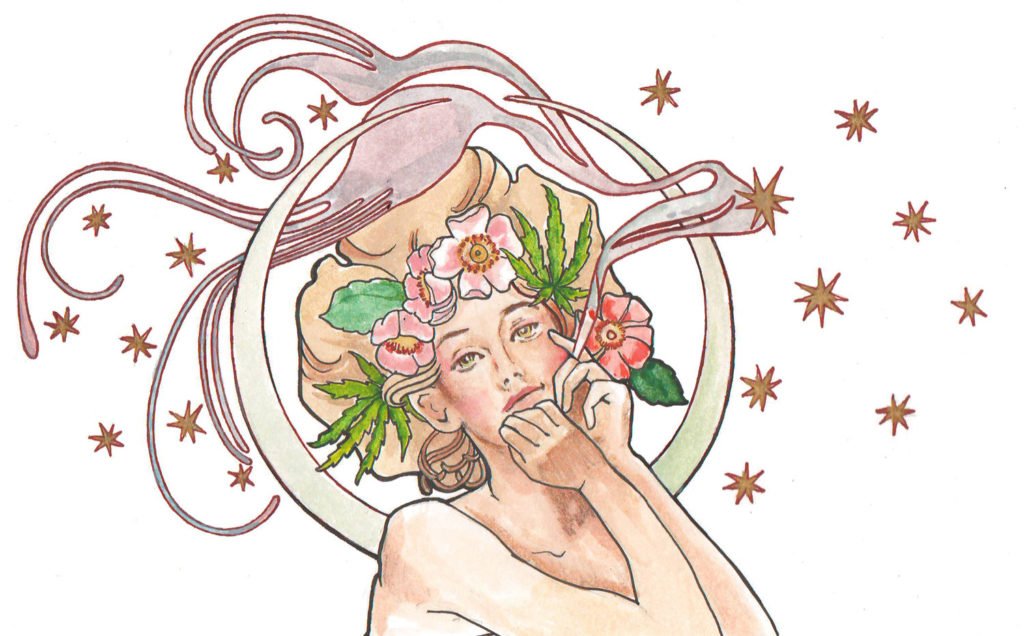
“Althea Haze” By Nicole Graf
Deadline for draft submissions: September 10th, 2018
As the field of film studies has developed, scholars have considered the influence of popular culture on the masses in a variety of ways, with particular attention paid to the role of popular media in perpetuating power structures. Pioneers of this subject discovered a rich space for academic debate, highlighting the important theoretical, philosophical, and sociological issues raised by widely recognized cultural texts. Cinema has long occupied a strange and variable place in culture apropos of the ‘popular’: it has been dismissed as mere entertainment, elevated as a legitimate art form, derided as archaic in the face of new media and technologies. Despite and perhaps because of this variability, cinema has remained an object of fascination for those scholars seeking to determine its place in (popular) culture. Yet regardless of the role of film studies in carving spaces of legitimacy in popular culture, we believe there are still barriers as to what can be considered part of this cultural canon. In the tradition of scholars such as Robin Wood, Carol Clover, Henry Jenkins and Linda Williams, dedicated scholarship is still necessary to open these areas of low culture to academic discourse.
In Cinephile 13.1, our goal is to encourage the use of low culture as a means to challenge the instinct to privilege critical engagement with texts deemed academically and culturally respectable. The concept of low culture is often used to refer to popular texts consumed by the masses rather than by an elite few; similarly, it is used to strike a contrast with texts recognized as ‘high art’. With Cinephile 13.1 we hope to enter existing conversations on low culture and provide a platform for scholars focusing on areas previously overlooked or continuing to develop in academic discourse. In our edition of Cinephile we are seeking to unpack the existing context in which academic engagements with these texts typically operate and interrogate this further. In doing so, we hope to engage with influential cultural spaces that deserve appropriate academic attention. We would like to see papers working with these understudied texts on levels including cultural analysis, textual analysis, or analysis of the scholarship surrounding them.
For Cinephile 13.1, Low Culture and Mass Media: Narratives of the Mainstream, we encourage scholarship that explores the margins of cinema and media studies. We invite work that considers the significance of cultural objects that have been overlooked in this discipline, giving special preference to papers discussing forms of visual media.
Possible topics can include (but are not limited to) any of the following:
- The ideological influence of popular culture
- Fandom studies, fanfiction, fan videos
- Cult cinema, B-Movies, bad cinema
- Viral Videos, YouTube culture, or other platforms such as Vine, Instagram Stories, Snapchat
- Porn studies in the new millenium
- Network sitcoms, televised sports, reality television
- Studies in children’s television or children’s media
- Web series and their significance to film studies
- Music videos, long form music videos, and visual albums
- Celebrity studies; the influence of celebrities on media, culture, and society
We encourage submissions from graduate students, postdoctoral researchers, and faculty. Papers should be between 2,000-3,500 words, follow MLA guidelines, and include a detailed works cited page, as well as a short biography of the author. Submissions should be directed toward submissions@cinephile.ca and general inquiries toward info@cinephile.ca.
Submissions are due by September 10, 2018.
Cinephile is the University of British Columbia’s film journal, published with the continued support of the Centre for Cinema Studies. Previous issues have featured original essays by such noted scholars as Lee Edelman, Slavoj Žižek, Paul Wells, Murray Pomerance, Ivone Marguiles, Matt Hills, Barry Keith Grant, K.J. Donnelly, and Sarah Kozloff. Since 2009, the journal has adopted a blind review process and has moved to annual publication. It is available both online and in print via subscription and selected retailers.
Incoming editors: Jared Aronoff, Gabrielle Berry, and Zoë S. Sherman

